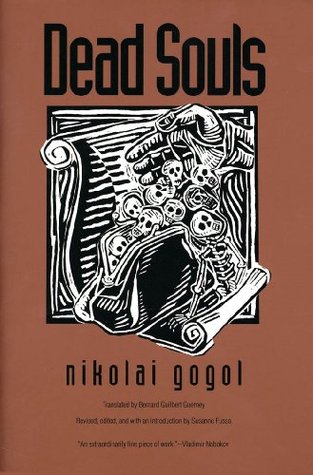On the mundane level, Chichikov’s day-to-day activity, his obsessive bargaining for “dead souls,” is a constant reminder of the hideous moral ulcer that a society founded on slavery can never hide or heal. Readers of Dead Souls in the decades following its appearance in 1842 tended to choose one of these two aspects of the work to focus on: its portrait of the human soul, especially in the context of Russian Orthodox theology, or its savagely satirical excoriation of the evils of nineteenth-century Russian society. Appropriately enough, the reading of Dead Souls as social commentary
...more
This highlight has been truncated due to consecutive passage length restrictions.
Luís liked this


